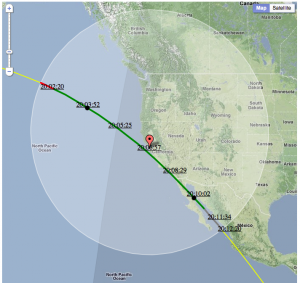I recently wrote about performing local timezone lookups with PostGIS. While this has been working well for me for many months, it requires that I keep an instance of PostgreSQL running just for this one purpose. At the time of that post, the spatial support in MySQL was pretty broken, but this should be fixed in the recent stable release of MySQL 5.6.11 (I haven’t tested it).
I’ve been paying more attention to MariaDB recently, which is an enhanced drop-in replacement for MySQL. (Wikipedia recently switched over to it from the facebook fork of MySQL). It is appealing to me for a couple of reasons: First, it uses the performance enhanced fork of the InnoDB engine, XtraDB. Also, it has had spatial support in a couple of stable releases already (introduced in MariaDB 5.3). So I decided to move to MariaDB 5.5.30, the current stable release as of this writing. (more…)
